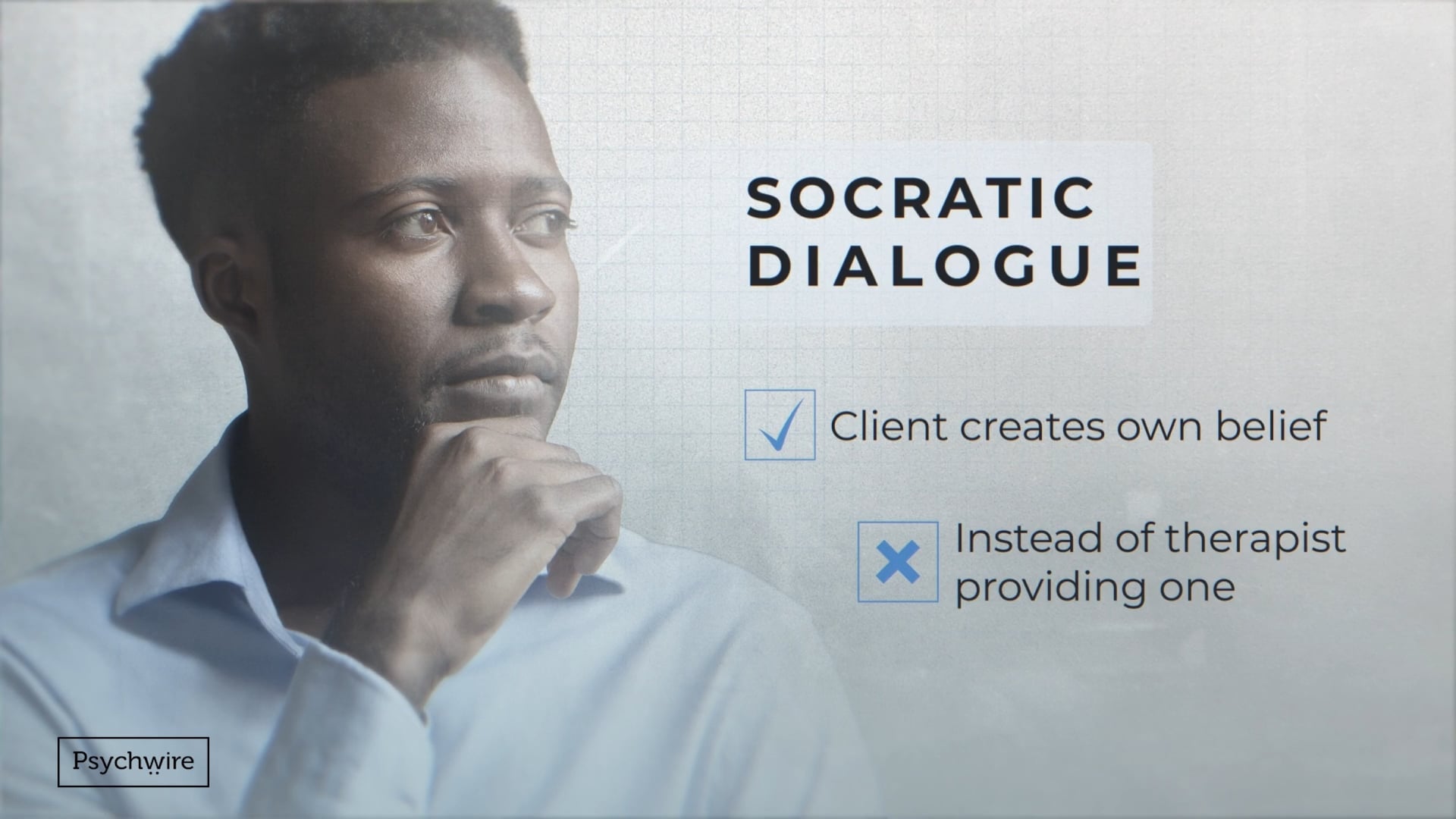
PTSD and Socratic Dialogue
 CBT for Trauma
CBT for TraumaSo you've started with helping the person identify thoughts and feelings. The next step in that process is for the therapist to use good, curious questioning to help teach the person how to start to question those beliefs or those assumptions. So it's Socratic dialogue. The goal with Socratic dialogue is for the client to create their own belief rather than the therapist to supply the belief for them. So what you're doing is you're asking good, curious questions.
To help them get to a belief that is more balanced and more accurate. Now sometimes I hear a myth about cognitive therapies that you're telling the person the belief. And that's not accurate. In fact, I would say that's not very good therapy generally, but it also wouldn't stick. It's that process of thinking about the reality, thinking about the whole picture and thinking about what a realistic alternative is.
Another myth that I hear is that it's just coming up with a positive belief. And that's also not accurate. Often with trauma, it's accepting really hard truths. Being able to sit with those, but not going too far with the logic. An example that I see pretty frequently is working around beliefs about safety, where the person may wanna believe that this will not ever happen to them again.
And that's actually not something that any of us can know. It may be this could happen again, but it's unlikely. So it's rightsizing the belief. And when you do that, then the emotions tend to get smaller and more manageable as well.